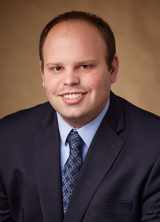Claimant Died: Now What?
 It is commonly said that there are only two constants in life: death and taxes. While Washington workers’ compensation benefits are generally tax free, death does not always wait for claims to close. Therefore, when a claimant dies their claim remains open and additional work must be done in order to resolve the matter and limit an employer’s ultimate exposure.
It is commonly said that there are only two constants in life: death and taxes. While Washington workers’ compensation benefits are generally tax free, death does not always wait for claims to close. Therefore, when a claimant dies their claim remains open and additional work must be done in order to resolve the matter and limit an employer’s ultimate exposure.
First, claimant’s cause of death must be determined. Whether their death was caused by the industrial injury or occupational disease determines what benefits the surviving spouse or dependent children of a claimant are entitled to pursuant to RCW 51.32.050. If claimant’s death was the result of the industrial injury, his or her family is entitled to burial expenses not to exceed 200-percent of the states average wage or $13,751.32 as of July 1, 2022. Second, the surviving spouse is entitled to survivor benefits as proscribed in RCW 51.32.050(2) for the remainder of their life or until they are remarried. It is important to note that claimant and their surviving spouse need not be married at the time of the injury but must be married at the time of death for claimant’s surviving spouse to be entitled to benefits.
However, the more common (and messier) situation occurs when claimant dies from conditions unrelated to their compensable injury. In this case, where the conditions proximately related to the industrial injury were not the cause of death, the question becomes if claimant had survived would he or she have been able to return to gainful employment once their compensable conditions had reached maximum medical improvement. The Board of Industrial Insurance Appeals in In re James J. McShane, Dec’d, BIIA Dec., 05 16629 (2006), held that when an injured worker’s industrial condition has not reached medical fixity at the time of death due to an unrelated cause, the beneficiary must prove that at the time of death the industrially related condition caused a particular impairment such that it would have but for the claimant’s death entitled claimant to a permanent partial disability award. This award is payable pursuant to RCW 51.32.040(2).
Conversely, if claimant’s conditions at the time death, would not have been expected to improve to the point that claimant could be expected to return to gainful employment once medical fixity had been reached then claimant’s surviving spouse and dependent children would be entitled to survivor’s pension. The Board was clear that the fixity of the condition at the time of death is irrelevant if the beneficiaries can establish that the deceased worker’s total disability was permanent then they would entitled to a survivor’s pension.
As you can see, the death of the claimant does not necessarily mean a quick resolution to the claim. The family of deceased claimants have the potential to receive a significant monetary award and thus are incentivized to aggressively pursue either a permanent partial disability or permanent total disability award.
If you have had a claimant pass away with an open claim and have any question about how to close the claim while limiting the employer’s exposure, feel free to contact me at or (971) 867-2724.
Posted by Joe Urbanski.

